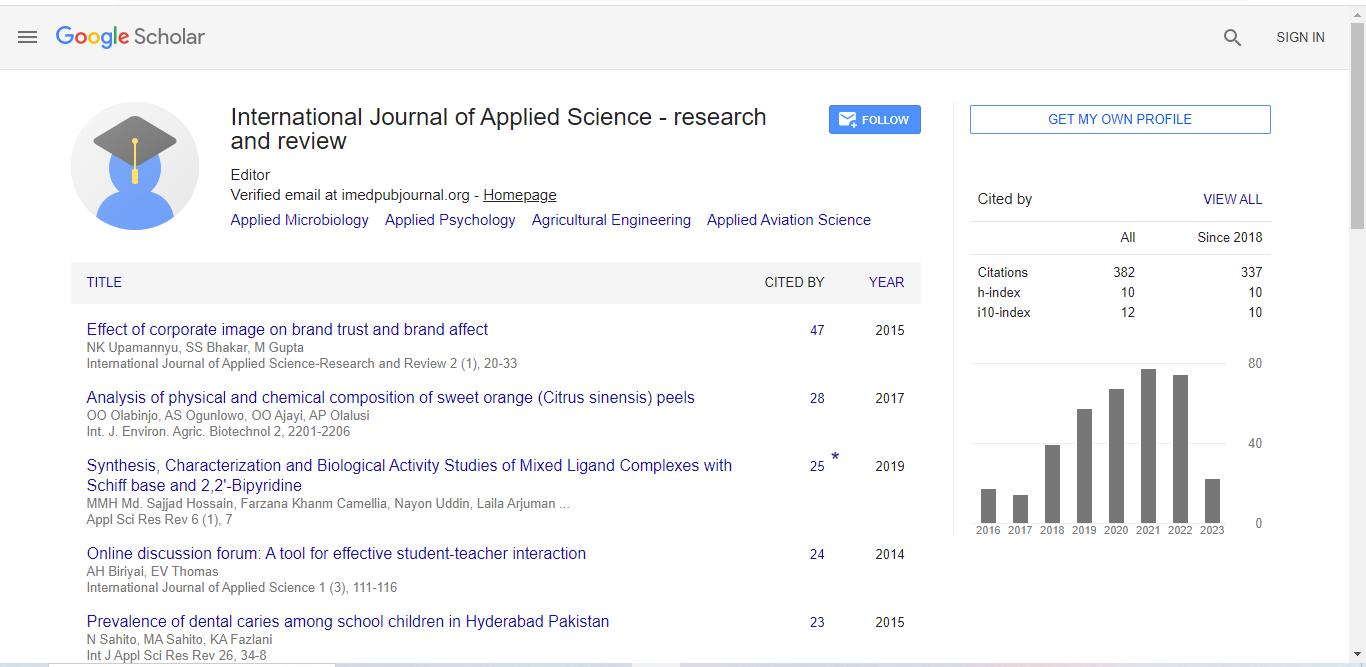Commentary Article - (2023) Volume 10, Issue 3
Artificial Intelligence: Revolutionizing the Future
Ulrike Haug*
Department of Computer Science, University of Deusto, Spain
*Correspondence:
Ulrike Haug,
Department of Computer Science, University of Deusto,
Spain,
Email:
Received: 31-May-2023, Manuscript No. IPIAS-23-17077;
Editor assigned: 16-Jun-2023, Pre QC No. IPIAS-23-17077 (PQ);
Reviewed: 21-Jun-2023, QC No. IPIAS-23-17077;
, Manuscript No. IPIAS-23-17077 (R);
Published:
28-Jun-2023, DOI: 10.36648/2394-9988-10.3.21
Description
Artificial Intelligence (AI) has emerged as one of the most transformative
technologies of our time, revolutionizing various aspects of
our lives. It encompasses the development of intelligent machines
that can perform tasks that typically require human intelligence.
From powering voice assistants and self-driving cars to improving
healthcare diagnostics and revolutionizing industries, AI is reshaping
our world.
One of the significant contributions of AI is its ability to automate
tasks, reducing human effort and improving efficiency. AI-powered
chatbots and virtual assistants have become ubiquitous, providing
instant customer support and information retrieval. Companies
are leveraging AI to streamline their operations, optimize processes,
and enhance productivity. As a result, businesses can allocate
resources more effectively, improving overall performance and
profitability.
Moreover, AI is transforming healthcare by augmenting the capabilities
of medical professionals. Machine learning algorithms can
analyze vast amounts of medical data to aid in diagnosing diseases
and developing personalized treatment plans. AI-enabled robots
are assisting in surgeries, performing precise movements, and
minimizing human error. With AI, the healthcare industry is witnessing
significant advancements, improving patient outcomes
and increasing accessibility to quality care.
AI is also making its mark in the field of transportation. Self-driving
cars, powered by AI algorithms, are becoming a reality. These
vehicles have the potential to revolutionize transportation by reducing
accidents caused by human error, improving traffic flow,
and reducing congestion. Additionally, AI algorithms can optimize
route planning and logistics, enhancing efficiency in shipping and
delivery services.
The impact of AI extends beyond specific industries, touching
various aspects of our daily lives. AI-powered recommendation
systems analyze user preferences and behavior to provide personalized
suggestions for movies, music, and shopping. Social media
platforms employ AI algorithms to curate personalized feeds and detect and moderate harmful content. AI has also found applications
in education, where intelligent tutoring systems adapt to
individual student needs, providing personalized learning experiences.
However, as AI continues to evolve, ethical considerations become
increasingly important. Issues like bias in algorithms and privacy
concerns need to be addressed to ensure the responsible and fair
deployment of AI technologies. Collaboration between researchers,
policymakers, and industry leaders is crucial to developing
frameworks and regulations that promote transparency, accountability,
and the ethical use of AI.
The future of AI holds immense potential. Researchers are exploring
cutting-edge technologies such as deep learning, natural language
processing, and computer vision to push the boundaries of
AI capabilities. Advancements in AI are leading to the development
of humanoid robots, capable of interacting and assisting humans
in complex tasks. Additionally, AI is being used to tackle some of
the world’s most pressing challenges, such as climate change and
sustainable development, by optimizing resource usage and providing
insights for informed decision-making.
The artificial intelligence is a transformative technology that is reshaping
our world. From automation and healthcare to transportation
and education, AI is revolutionizing various sectors. However,
ethical considerations and the need for responsible deployment
cannot be overlooked. As AI continues to evolve, collaboration,
regulation, and continuous learning will play a crucial role in harnessing
its potential while mitigating potential risks. With proper
guidance and a responsible approach, AI has the power to drive
innovation, improve human lives, and shape a better future.
Acknowledgement
None.
Conflict Of Interest
The author declares there is no conflict of interest in publishing
this article.
Citation: Haug U (2023) Artificial Intelligence: Revolutionizing the Future. Int J Appl Sci Res Rev 10:21.
Copyright: ©2023 Haug U. This is an open-access article distributed under the terms of the Creative Commons Attribution License, which permits unrestricted use, distribution, and reproduction in any medium, provided the original author and source
are credited.

